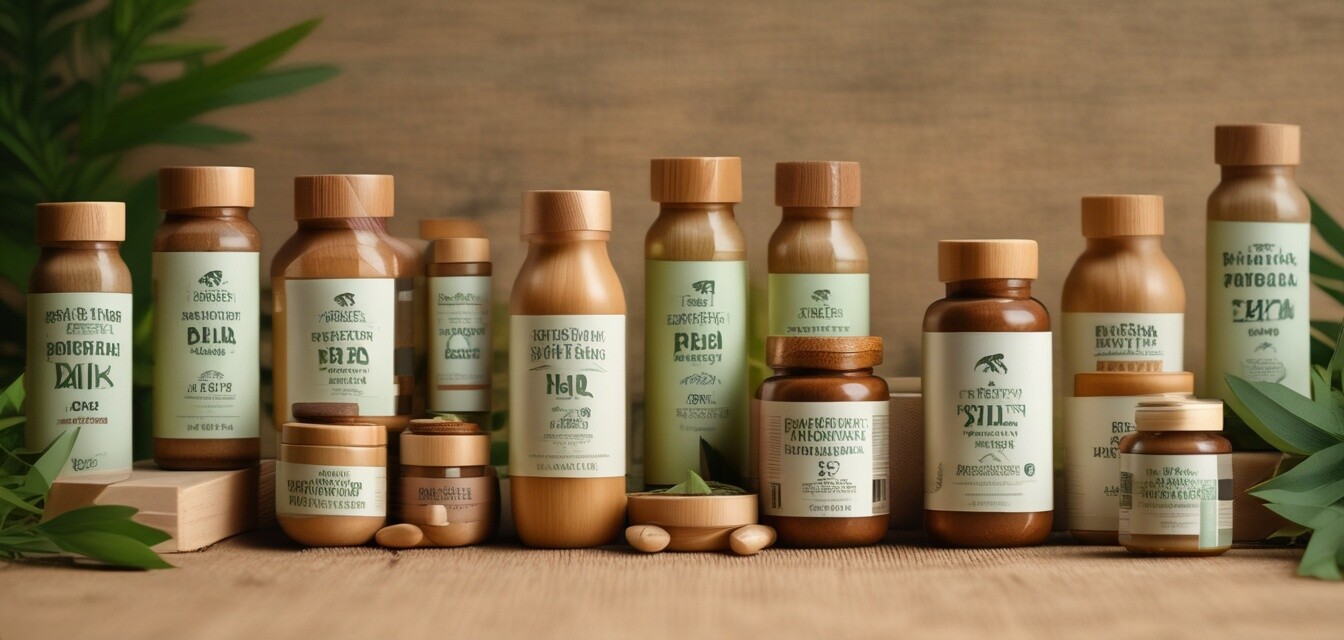
Budget-friendly ethical supplements: Top picks
Key Takeaways
- Exploration of affordable ethical supplements available in the market.
- Understanding labels and what makes a supplement sustainable.
- Comparative analysis of different types of supplements for value.
- Tips for choosing ethical supplements without overspending.
Finding budget-friendly ethical supplements can be overwhelming, especially with the growing number of options in the health market. However, making conscious decisions doesn't mean you have to break the bank. This guide will provide you with insights into affordable yet sustainable supplements that align with your values.
Why choose ethical supplements?
Ethical supplements play a significant role in promoting health while also being mindful of environmental and social impacts. They are produced using sustainable methods, ensuring that the resources used do not harm our planet. Here are some reasons to consider such supplements:
- Support for sustainable sourcing practices.
- Reduction of carbon footprint.
- Encouragement of ethical labor practices.
- Promotion of environmental consciousness.
Types of budget-friendly ethical supplements
1. Herbal supplements
Herbal supplements are derived from plants and have been used for centuries for various health benefits. Choosing budget-friendly herbal options that are ethically sourced ensures you can support both your health and the environment. Here are some of the popular choices:
| Herb | Benefits | Price Range |
|---|---|---|
| Turmeric | Known for its antioxidant properties. | $10 - $20 for a month supply. |
| Ginger | May aid digestion and support wellness. | $8 - $15 for a month supply. |
| Echinacea | Traditionally used to support the immune system. | $12 - $25 for a month supply. |
2. Multivitamins
Multivitamins provide a balanced blend of essential nutrients. Many brands focus on ethical sourcing and eco-friendly packaging. When choosing multivitamins, be sure to look for certifications indicating sustainable practices.
| Brand | Features | Price Range |
|---|---|---|
| Ethical Multivitamins | Sourced from organic ingredients, no added sugars. | $15 - $30 per bottle. |
| Nature’s Way | Environmental impact minimized with sustainable farming. | $12 - $25 per bottle. |
| Garden of Life | Whole food-based, suitable for vegan diets. | $18 - $35 per bottle. |
3. Omega-3 supplements
Omega-3 fatty acids are essential for overall health. Many affordable omega-3 supplements are derived from algae, providing a sustainable alternative to fish sources. Look for those that are certified as ocean-friendly.
| Source | Benefits | Price Range |
|---|---|---|
| Algal Oil | Sustainable plant-based alternative to fish oil. | $18 - $30 for a month supply. |
| Flaxseed Oil | Rich in omega-3s and budget-friendly. | $10 - $20 for a month supply. |
| Chia Seed Oil | Another plant-based source that is high in omega-3s. | $15 - $25 for a month supply. |
4. Protein supplements
Protein supplements come in various forms, including powders, bars, and shakes. Choosing vegan protein options can be a more ethical and often more affordable alternative to dairy-based proteins.
| Type | Source | Price Range |
|---|---|---|
| Pea Protein | Easy to digest, budget-friendly option. | $20 - $40 for a month supply. |
| Rice Protein | Sustainable and allergen-friendly. | $18 - $35 for a month supply. |
| Hemp Protein | Rich in omega fatty acids, a green source of protein. | $15 - $30 for a month supply. |
How to choose budget-friendly ethical supplements
Selecting the right supplements can feel daunting. Here are some tips to ensure you're making informed choices without overspending:
Tips for beginners
- Check for certifications: Look for seals of approval indicating sustainable practices.
- Read ingredient labels: Ensure there are no unnecessary fillers or additives.
- Compare prices: Use websites and apps to compare the prices of different brands.
- Buy in bulk: Consider purchasing larger quantities to save money in the long run.
- Look for sales: Keep an eye out for promotions and discounts on trusted retailers.
Understanding labels on supplements
Labeling can be confusing, but understanding what to look for can help make your decisions clearer. Here are some key terms to know:
- Non-GMO: Ingredients that have not been genetically modified.
- Organic: Products grown without synthetic pesticides or fertilizers.
- Vegan: Free from animal products.
- Fair Trade: Ensures ethical practices in sourcing and labor.
Conclusion
Budget-friendly ethical supplements offer you the chance to prioritize your health and the environment. By choosing wisely, you can find products that meet your wellness needs without compromising your values or wallet. For more insights on ethical supplements, check out our Buying Guides section.
Pros
- Support sustainable practices.
- Affordable options are available.
- Variety of supplements to meet different health needs.
- Encourages conscious consumerism.
Cons
- Some products may be harder to find.
- Price fluctuations can occur based on demand.
- Quality can vary between brands.
With this comprehensive guide, you'll be better equipped to navigate the world of supplements ethically and affordably!